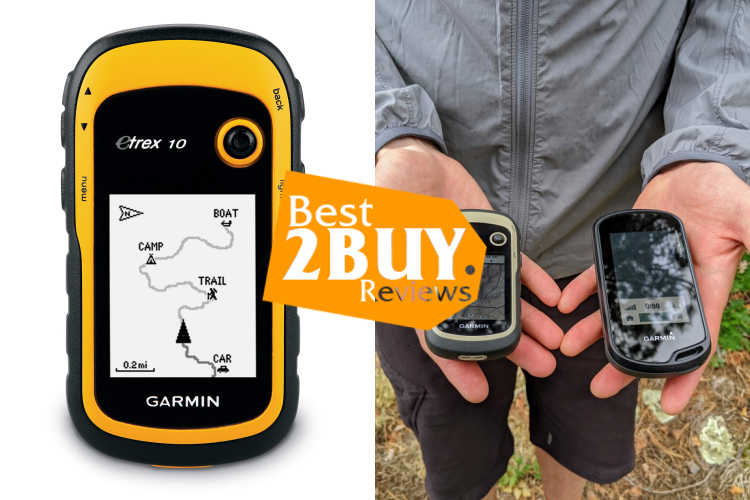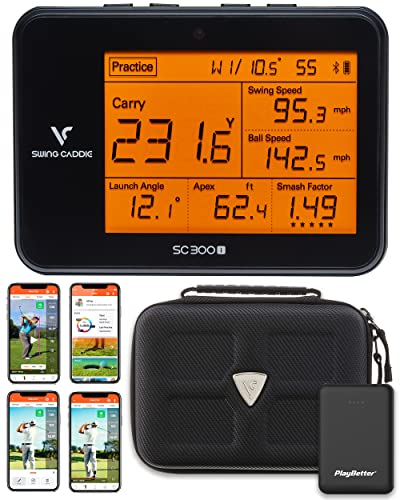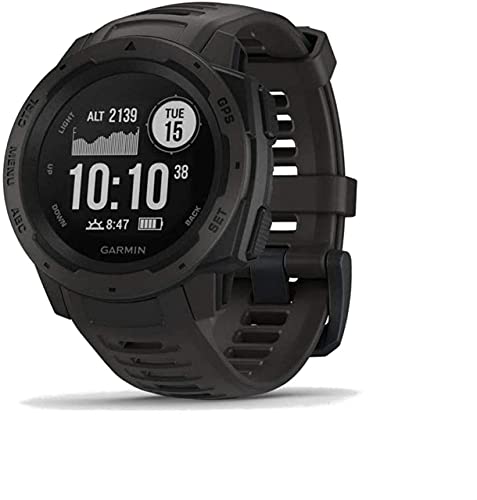How to Choose the Handheld GPS Units
Handheld GPS Units: What You Need To Know

While GPS technology was once groundbreaking, it has now become ubiquitous, integrated into various devices such as drones and even dog collars. Nevertheless, a handheld GPS receiver still holds its significance as an indispensable outdoor tool for hikers and other adventurers exploring remote areas. It provides essential information about your current location, your past routes, and your intended destinations.
What is a Handheld GPS Unit?
A compact and portable device known as a handheld GPS (Global Positioning System) unit leverages a constellation of satellites to accurately pinpoint your exact position on Earth. These gadgets are engineered to furnish instantaneous geographical details, such as your latitude, longitude, altitude, and frequently more sophisticated data like your speed, heading, and the distance you've covered. They have established themselves as indispensable instruments for a diverse array of pursuits, spanning from hiking and geocaching to fishing and hunting.
Key Features of Handheld GPS Units
- Precise Positioning: Handheld GPS devices rely on a constellation of satellites circling the Earth to accurately determine your location. The most advanced models can provide location data with remarkable precision, typically within a few meters, ensuring that you never lose your way in the wilderness.
- Mapping and Guidance: Numerous handheld GPS units come preloaded with highly detailed topographic maps, simplifying the planning and execution of outdoor adventures. They offer turn-by-turn navigation, the ability to mark waypoints, and the creation of routes, enabling you to chart your course and confidently follow it.
- Rugged Durability: Outdoor activities frequently involve exposure to challenging weather conditions and rough terrains. Handheld GPS units are engineered to endure these challenges, featuring robust designs that are resistant to shocks, water, and dust.
- Extended Battery Life: Depending on the specific model and usage patterns, handheld GPS units can provide anywhere from 10 to 20 hours of continuous operation on a single set of batteries. Some models even offer rechargeable battery options for added convenience.
- Waypoints and Tracks: GPS units allow you to designate waypoints at significant locations during your journey. Additionally, you can record tracks to retrace your path or share your route with others.
- Geocaching: Geocaching is a popular outdoor activity where participants employ GPS coordinates to hide and seek containers (known as geocaches) in various locations worldwide. Handheld GPS units are the preferred tool for dedicated geocaching enthusiasts.
Advantages of Using Handheld GPS Units
- Safety: Handheld GPS devices are essential for ensuring your safety during outdoor activities. They can assist you in returning to your starting point or locating the nearest trailhead or road in case you lose your bearings.
- Exploration: Equipped with a GPS unit, you can boldly explore uncharted territories, uncover hidden treasures, and wander off well-trodden paths while minimizing the risk of becoming disoriented.
- Accuracy: Unlike smartphone GPS applications, which may rely on cellular networks, handheld GPS devices are independent of cellular signal coverage. They operate seamlessly in remote and off-grid locations, offering dependable positional data.
- Battery Efficiency: Utilizing a dedicated GPS unit conserves your smartphone's battery life, enabling you to employ it for other crucial tasks during your outdoor escapades.
Choosing the Right Handheld GPS Unit
There are various factors to take into account when determining the most suitable GPS system for your needs. These considerations include price, features, screen size, and portability. If your primary requirement is to confirm your position in emergency situations or simply to complement your traditional map and compass, a basic and affordable GPS device may suffice. However, if you desire a GPS device that can partly replace a paper map, you should seek one with on-screen mapping capabilities and a practical screen size, ensuring it displays maps in the appropriate scale for your purposes.
Here are some additional factors to weigh when selecting a handheld GPS device:
- GPS Position Reporting: Different GPS devices provide varying levels of information. Some devices only offer latitude and longitude coordinates, while others also provide grid references, altitude, and distance data.
- On-Screen Mapping: If you require a GPS device that displays maps, ensure it offers maps in the suitable scale and format for your navigation needs.
- Memory and Battery Life: Keep in mind that larger screens and more features tend to consume more power, which can either result in added weight or reduced battery life. Verify that the device's battery life meets your requirements. Devices with replaceable batteries are advantageous, as they are generally easier and more cost-effective to replace. Additionally, consider storage space for maps, as some devices use external memory cards while others rely on internal memory, and some combine both options.
- Durability: While most GPS units can withstand light rain, some are designed to handle complete immersion in water. A rugged case can provide extra protection against drops and impacts while also improving grip.
- Buttons vs. Touch Screen: Many GPS devices are equipped with touch screens for user convenience, but they may be challenging to operate with cold hands or while wearing thick gloves.
- Magnetic Compass: Some GPS units come with a built-in magnetic compass, which simplifies direction checking. Without this feature, you may need to move a short distance to allow the device to calculate your heading.
- Price: The price of handheld GPS units can vary depending on various factors such as brand, features, and functionality. Generally, handheld GPS units range in price from around $100 to $600 or more. Determine your budget and look for a unit that offers the features you need within that range.
Using Your GPS
Even a basic GPS unit boasts a wide array of settings and features. Since the operation of each unit varies, this article will not provide step-by-step instructions. We recommend consulting the owner's manual to become familiar with your device. Afterward, consider practicing in your local neighborhood or a nearby park until you feel confident in your understanding of its functionality.
Despite differing procedures, all GPS receivers perform the following fundamental functions:
- Displaying Position: A GPS device indicates your current location by presenting your coordinates, and it can also display your position on its base map or topographic map.
- Recording Tracks: When tracking mode is activated, a GPS automatically records digital waypoints at regular intervals, often referred to as "track points." These can be later used to retrace your path or assess your traveled route.
- Point-to-Point Navigation: GPS guides you by providing both the direction and distance to a specific location known as a "waypoint." You can predefine waypoints by inputting their coordinates at home, or you can have the unit mark a waypoint on-site, such as at a trailhead or your campsite. The GPS unit offers the bearing and "as the crow flies" distance to a waypoint. Keep in mind that trails are rarely straight, so the bearing changes as you hike, and the distance to your destination decreases (unless you're going in the wrong direction).
- Displaying Trip Data: Similar to an odometer, this function provides cumulative statistics, including the distance you've traveled and the elevation you've gained.
GPS and Computer Integration: GPS units typically come with robust software that enables you to manage maps, plan routes, analyze your trips, and more. Invest time in learning this software and practicing its capabilities.
The advent of handheld GPS devices has completely transformed the way people navigate and explore the outdoors. These devices offer users precise location information, advanced mapping capabilities, and increased safety when venturing into the wilderness. Regardless of whether you are a passionate hiker, a dedicated geocacher, a seasoned boater, or an avid hunter, there is a handheld GPS unit designed to cater to your specific needs. By selecting the right device and mastering its functions, you can elevate your outdoor experiences, discover uncharted territories, and always ensure a secure journey back home. Whether you are embarking on an epic adventure or simply enjoying a leisurely walk in the natural world, it's worth considering the addition of a handheld GPS unit to your collection of tools for navigating our vast world.










